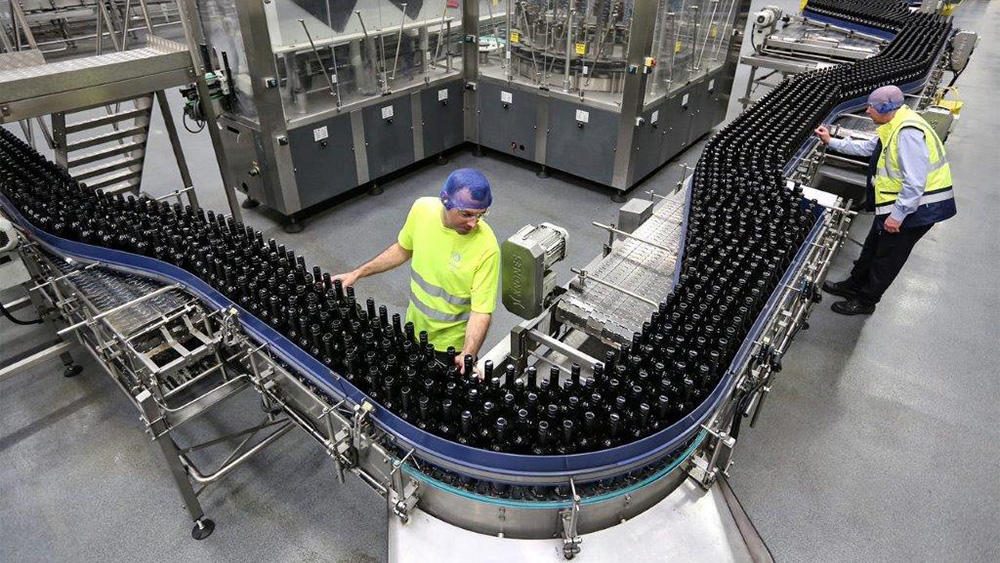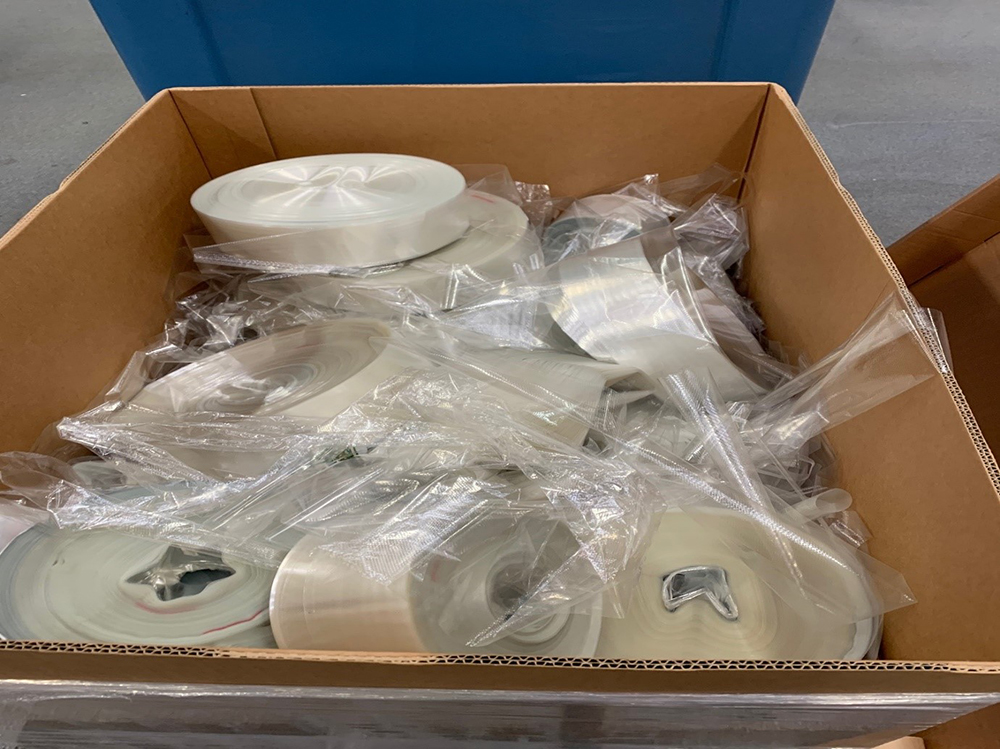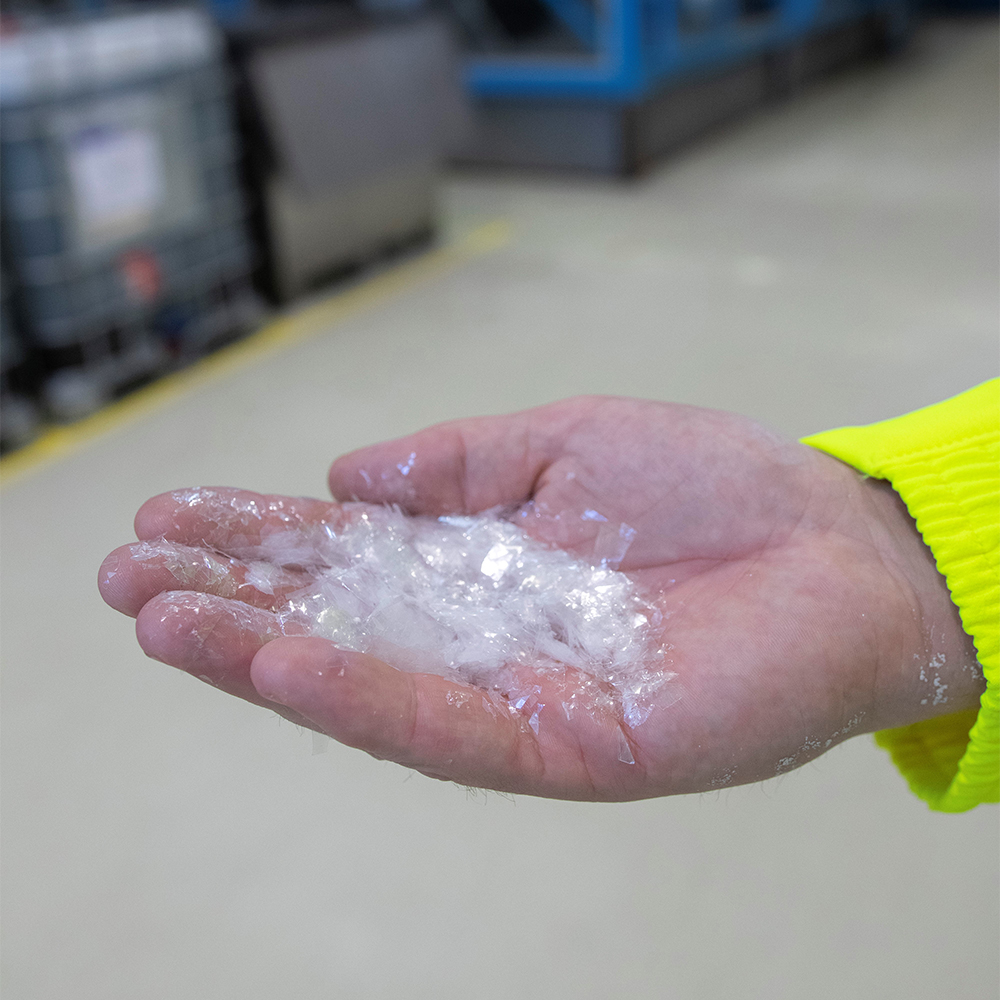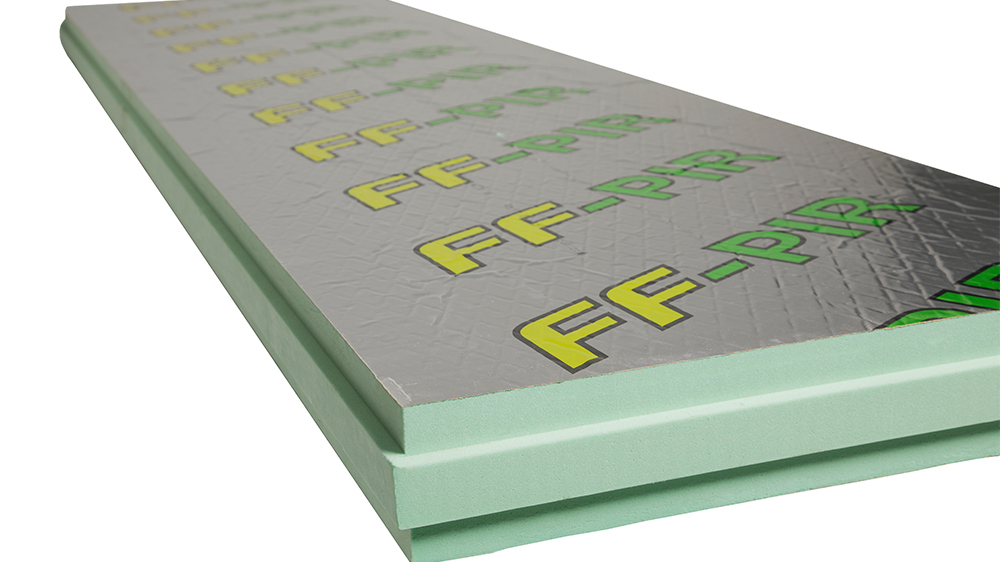TAKEWAYS
- The Park, one of UK’s biggest wine and drinks production facilities utilizes RafCycle™ recycling service to enhance the sustainability of their production.
- The Park is a part of the value chain that enables the recycling of label liner waste. The PET label liner waste collected from The Park through RafCycle is used as a raw material for insulation in construction.
- Collaboration between companies enables successful circular economy initiatives, efficient use of raw materials and waste being recycled instead of incinerated.
The Park is a wine production facility located in Bristol, UK. With the capacity to produce 30 million nine-liter cases of wine each year, it is one of the biggest wine and drinks producers in the UK. The production volume accounts for approximately 25% of all wine sold in the UK. Behind the figures lies a state-of-the-art production facility where the sustainability of the production is thoroughly planned.
 Picture from The Park’s facility.
Picture from The Park’s facility.
The facts are impressive: The Park is certified as Carbon Neutral site by Carbon Trust, 100% of their electricity supply is renewable, 50% of which is supplied from a 2,5MW on-site wind turbine. In addition, The Park sends zero waste to landfill. UPM Raflatac’s RafCycle recycling service contributes to recycling label liner waste and keeping it in circulation.
“At The Park, we are constantly looking for new ways to develop our facilities and processes to make the production more efficient and sustainable. Before we were introduced to RafCycle, we had a problem with the label liner waste going to incineration. We pushed our stakeholders to find a solution for the problem, and Reflex Labels introduced us to RafCycle,” says Peter Ball, Head of Operations Planning and Product Development at Accolade Wines.
RafCycle recycling service is label release liner waste recycling at its simplest. The Park collects the label liner waste in their facility, after which UPM Raflatac arranges the pickup. As with any new process, the biggest and the most important task with RafCycle was to develop the proper ways of working and train the staff. At The Park that meant training around 200 people.

“Developing and internalizing the proper ways of working with RafCycle was a learning curve for us. To make the RafCycle work, we had to change some of our internal processes. After some issues with the first couple of batches, we got the new ways of working across our staff and now the daily process is mainly a routine of ensuring that the collected waste liner is pure and that there is no contamination,” says James Selby, Supplier Development Manager at Accolade Wines.
Today, UPM Raflatac has collected 93 tonnes of liner waste for recycling from The Park’s facility. The collected liner waste could therefore be diverted from incineration and was partly recycled back into various PET products and partly given a second life as insulation material.
“We are delighted that The Park has been able to integrate the RafCycle service as part of their daily processes. This includes the timely communication, as doing the pick-ups are dependent on it. When the liner waste storage gets about 3/4 full, The Park contacts us, and we arrange the collection. The Park awarded RafCycle with The Supplier of the Year Award in August 2022, which proves that the collaboration is working,” says Jay Betton, Packaging Solutions Manager at UPM Raflatac.
Collaboration through the value chain enable successful circular economy initiatives
In making the circular economy a reality, individual organizations play an important role of setting the agenda, developing technologies, and creating the momentum for change. Still, what differentiates a truly successful circular economy initiative from less successful is the collaboration between companies through the value chain.
When the label release liner is collected from The Park facility in Bristol, UPM Raflatac orders a collection, and the material is further processed in one of its partner companies. The partner of choice depends on whether the recycled liner is made of paper or PET plastic.
 PET liner waste.
PET liner waste.
A partner that is specialized in PET liner recycling is a Finnish company Inosence Polyol Oy. Inosence Polyol has developed a chemical recycling technology where the PET plastic is processed and transformed into polyol. Polyol is a liquid raw material which can be used in different ways for different end-uses.
 PET liner waste ready to be transformed into polyol.
PET liner waste ready to be transformed into polyol.
In this case, the polyol is used by another Finnish company Finnfoam to make PIR polyurethane insulation, which is applicable for different purposes in construction. The polyol serves as one of the two main raw materials for this type of insulation.
 Finnfoam FF-PIR ALK 100 insulation.
Finnfoam FF-PIR ALK 100 insulation.
“To make circular economy become reality, we need seamless collaboration between companies that are both eager and capable to develop new technologies and processes that enable different kinds of circular economy solutions. This example perfectly showcases that with the right partners working in the value chain, the label liner used for wine and beverage labeling can be recycled and used as a raw material for a product that has high added value and binds carbon for decades,” says Juha Virmavirta, Director of RafCycle Solutions in UPM Raflatac.